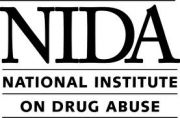Posted on January 31, 2014
Source: NIDA Notes

Hepatitis C virus (HCV) infection causes liver fibrosis that worsens as patients age, potentially progressing to cirrhosis and culminating in liver failure. A NIDA-funded study shows that concurrent infection with human immunodeficiency virus (HIV) is likely to hasten the onset of these clinical turning points.
Dr. Gregory Kirk and colleagues at the Johns Hopkins University (JHU), Baltimore, assessed liver fibrosis serially in more than 1,100 current and former injection drug users who were infected with HCV. After allowing for other factors that speed fibrosis, the JHU team estimated that patients with HIV–HCV coinfection progressed to successive degrees of severity 9 years sooner than those infected with HCV alone.
Further findings from the study suggest that suppressing HIV with antiretroviral medications may slow HCV-related liver fibrosis. Moreover, the findings accord with a hypothesis that HIV infection accelerates the general aging process—in which case suppressing HIV may moderate the progression of other chronic diseases as well.